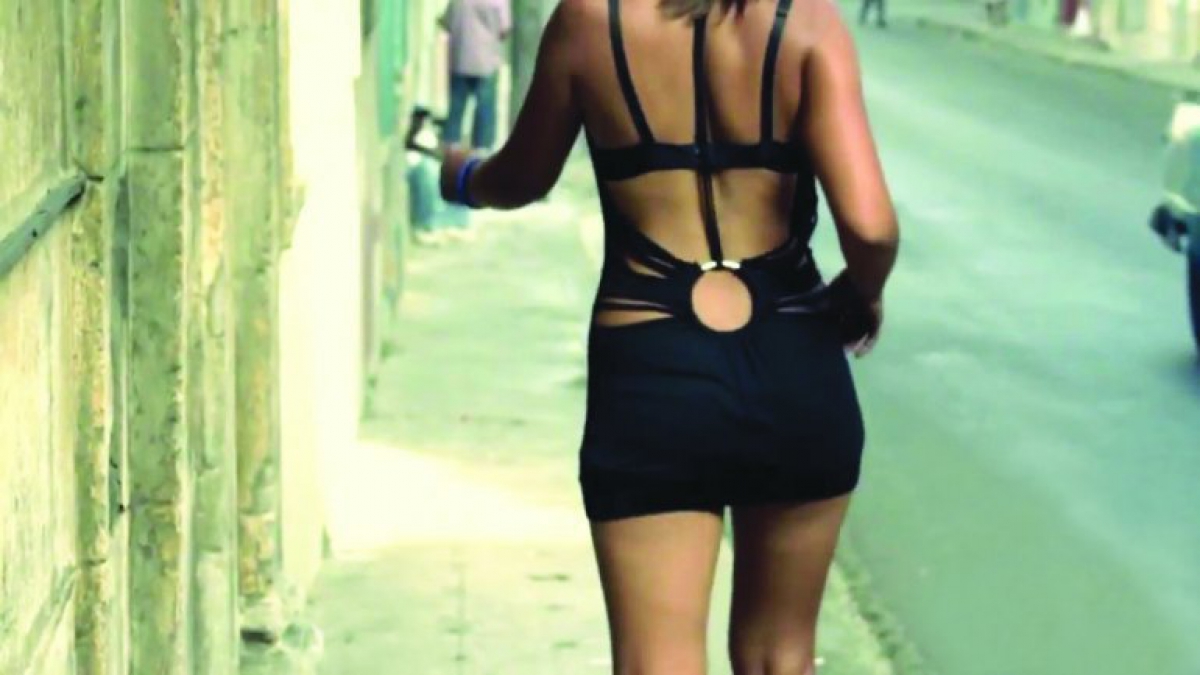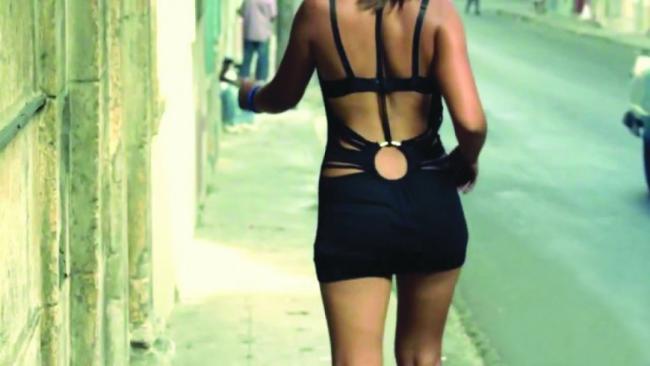They help Claudia because they know that she is "struggling" too. They struggle by opening their legs, Claudia by opening the doors to the bar when they arrive with tourists: "Good evening, here's the menu." When their speech is strange, not because they are from other countries, but because of the alcohol in their veins, and because it is getting very late hours, they help Claudia:
"Give the chica a good tip," they suggest, and they say chica and not muchacha or camarera (waitress) or bartender. Claudia doesn't care what they call her; it's all a show, a staging, night after night. A peddler of cocktails who is in on the arrangement, an incidental character who recites her lines so that the rum keeps flowing down the customer's gullets.
"Of course, you can't put bar I work at, but at each of the six where I've been, it's the same old story."
Claudia, who studied Gastronomy, spurned the meager State salaries as soon as she could, and three years ago ended up marching into the promising field of self-employment.
In the 90s the Government allowed the first limited forms of private property in Cuba, but it was not until 2013 that the categories of licenses were greatly expanded, to 211. None specified the founding of bars. It didn't matter. Havana lit up with new neon signs.
By the end of 2016 the city had more than 500 paladares, or private restaurants. Many of them simply set up a section for nights, where there would be a bar. Like moths to a flame, people showed up for the music; sometimes recorded, sometimes live.
Websites and mobile applications such as "A la mesa" promoted well known businesses, registered with restaurant licenses, as "bars". For to the Cuban State, they did not exist, but for everyone else they did. And for Claudia they constituted an opportunity to make more money.
"They might pay you five dollars to work from 9:00 pm to 3:00 am, but you live off the tips. And the girls bring customers, usually with money."
Claudia says muchachasand not jinetera (hustler), puta (whore) or prostituta. They don't care what they call them; few definitions fit them so well. Jugglers of desire, a link in the chain between Cuban macro and microeconomics, between the ascending numbers of the Ministry of Tourism and the private bars.
Spanish YouTuber Carter Vlogs says that he corroborated that link at Havana's Fantaxy, which belongs to Sandro Castro, Fidel Castro's grandson. The videoblogger was offered women "as if they were worthless."
"I have them in all colors: cinnamon, white, black", they said at that bar, with reserved tables, where the admission alone is 10 CUC. The average salary in Cuba is less than 30.
The places where Claudia has worked slap astronomical prices on the products they sell. When a group of Cubans enters, everyone from the bartender to the bouncers scrutinize what they are wearing. Expensive clothes? They're in. Cheap? Then they have a line that scares them off: "Good evening, the only tables available come with a bottle that costs 100 CUC". The invaders go away, annoyed or giving excuses. The bar is often empty.
"But it's not worth serving those people, because they don't order much, and they leave nothing for the staff," Claudia says, snapping her fingers.
A priori, on the socialist island the distances between the haves and have-nots are aggravated.
"That's why it's so important for the girls to come, because they bring in the yumas (Americans). We let them sit at the bar with the same drink all night, so they can throw out the hook."
And if they don't catch anything?
"They have to catch something, because if they leave without anything, for many days, then we won't let them in anymore. Security knows who everyone is, and why they are going to the bar." Claudia takes a cigarette to her mouth, with an expression that says "I don't care." It's her day off and she's out to have a good time. "If you help me, I'll help you."
In September of 2016, the Government in Havana decided to temporarily suspend the issuance of licenses, to open its own paladares. The acting vice-president of the Provincial Administration Council (CAP), Isabel Hamze, recognized, to the official press, the existence of prostitution and solicitation at some paladares.
The official called on owners "not to allow pimps to be linked to restaurants, so that people don't say they go to an establishment like that because girls are sold there." Her entreaty, clearly, has fallen on deaf ears.
According to Claudia, this situation will never end. Both the service staff and the prostitutes have a tacit agreement that benefits both parties. And the faint scent of money solves the problem if either party falters.
The bar/prostitution link in revolutionary Cuba does not seem to equal that of prerevolutionary Cuba, although it did spike in the 90s. The journalist Amir Valle recalls that to write his article "Havana-Babylon: The Hidden Side of the Jineteras", he went to clandestine establishments where women were on display. In the second decade of the 21stcentury, at the beginning of the recent bar fever, Puertas al Cielo, among the most popular, ended up being raided by the police. On a metallic bar, young women would strip.
What about drugs?
Claudia fidgets with the box of Hollywood menthol cigarettes on the bar of the Fábrica de Arte Cubano, a popular private nightclub that Michelle Obama even visited in 2015.
"We don't get into that," he begins. When a customer takes something, Security throws him out, and when it is in the VIP area, the private rooms, a girl discreetly come out to tell us. They know that it's bad, that the police there are on top of that."
The consumption and/or sale of psychoactive substances at restaurants is, actually, common knowledge. The government in the capital recognized the presence of "traffickers who seek locations where consumers are to be found." But for the bars, scandals like that have not jeopardized the suspension. Quite the contrary.
At a recent session of the National Assembly, Marino Murillo, the most visible face promoting the current economic reform measures, announced a provision that includes a new license to operate bars, "until now camouflaged under gastronomic activity licenses," he said.
With reggaeton in the background and under a dim light, a young girl approaches Claudia. After the introductions, and without too much fuss, she asks her for the thin nylon wrapped around a box of cigarettes. She needs it urgently to crush, with the edge of her iPhone, a handful of pills, and snort them.

